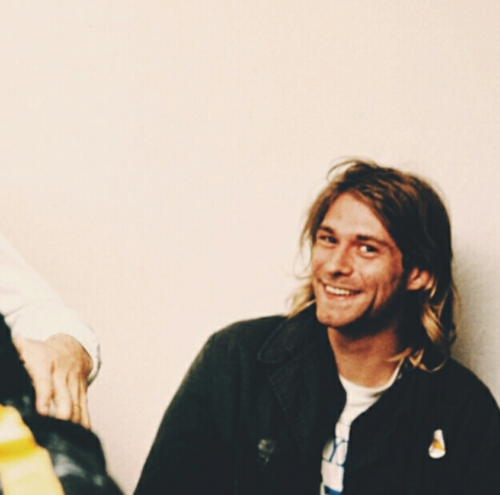As April 5th (though this date is still speculative to some) marked the twenty-third anniversary of Kurt Cobain’s death–or, more specifically, suicide–it becomes increasingly clear that fans and casually interested parties alike continue to place primary emphasis on the mystery and lore surrounding his decision to end it all as opposed to the contributions he made in life.
Between an endless barrage of films and documentaries that span from the likes of Last Days to Montage of Heck, so much weight has been placed on the legend surrounding the how and why of his self-imposed demise that a celebration of his music and personality often feels like background to the noise of his self-destruction. Positioned by the media as the “spokesman for a generation” after 1991’s Nevermind and the associated track, “Smells Like Teen Spirit,” Cobain’s drug-addled trajectory spiked, leading up to his first attempt at death in March ’94 in a hospital in Rome after mixing excessive amounts of Rohypnol and champagne.
But what about the time before this period of unshakeable depression, of wanting the monster created in the wake of the Nirvana juggernaut to go away? One could argue that perhaps Cobain’s happiest time in life was in forming the band to begin with, at the outset setting his eyes on Aberdeen High classmate and bassist Krist Novoselic. Novoselic, however, didn’t seem as initially enthusiastic about the notion of creating a band with Cobain, taking three years to respond positively to a tape Cobain had given him of his project, Fecal Matter.
Once the duo aligned in 1987, it seemed that Nirvana was destined to make its imprint–if, on nothing else, at least the Seattle music scene. As Cobain and Novoselic went through a revolving door of drummers, they still managed to secure a recording deal with then under the radar indie label Sup Pop Records in 1988, when the label was founded. Their first single was a cover of “Love Buzz” by Shocking Blue, which they transformed from its psychedelic incarnation into a moody, grunge-tinged one.
Bleach, their first full-length album made on a budget of $606–and arguably their angriest and most visceral–came out in 1989. And, like Morrissey with Rough Trade before him, Cobain found himself more than slightly irritated with Sub Pop’s lack of promotion over a record that quickly became a favorite among the college radio listening set. Even so, the elation of this period couldn’t be denied, with the band’s first national tour giving them an initial taste of success they never knew their angsty songwriting could procure.
Once Dave Grohl was introduced to Cobain and Novoselic in 1990 by Melvins guitarist Buzz Osborne, the solidification of the band’s place in music history was secured. After all, it was one of those “it just clicked” moments, with Novoselic later commenting, “We knew in two minutes that he was the right drummer.”
And so it was that Cobain’s era of happiness was coming to its third act, the culmination caused by a buildup to something so great it could only be a letdown in the end. Though he wanted to be famous–like any guy in a band telling himself it’s all for love of music–the level of fame he achieved was undeniably something he never could have fathomed until receiving it. A combination of drugs, increasing lack of enthusiasm for his art and, well, a, shall we say, fraught relationship with Courtney Love created the cocktail that would dampen the five-year period of sheer bliss Cobain experienced from ’87 to ’92. And in that wake was left Cobain’s contempt for the type of fanbase that commented on just how deplorable humanity is (suicide note printed on a t-shirt, for example).
But back to what everyone likes to talk about most when they talk about Cobain: his death. The body, not found until April 8th by an electrician, was accompanied by a suicide note addressed to his childhood imaginary friend, Boddah. The symbolism of this is particularly tragic as, presumably, at this juncture, Cobain probably only felt that his only real friends could be imaginary. And yet, as any depressed person can tell you, a large bulk of depression stems from the disappointment of having so much hope for and faith in other people.
The masses can persist in fixating on Cobain’s suicide, but it would be nice if, every few April 5ths and April 8ths, he could be remembered with a smile on his face. For he was so much more than just “miserable.”




















